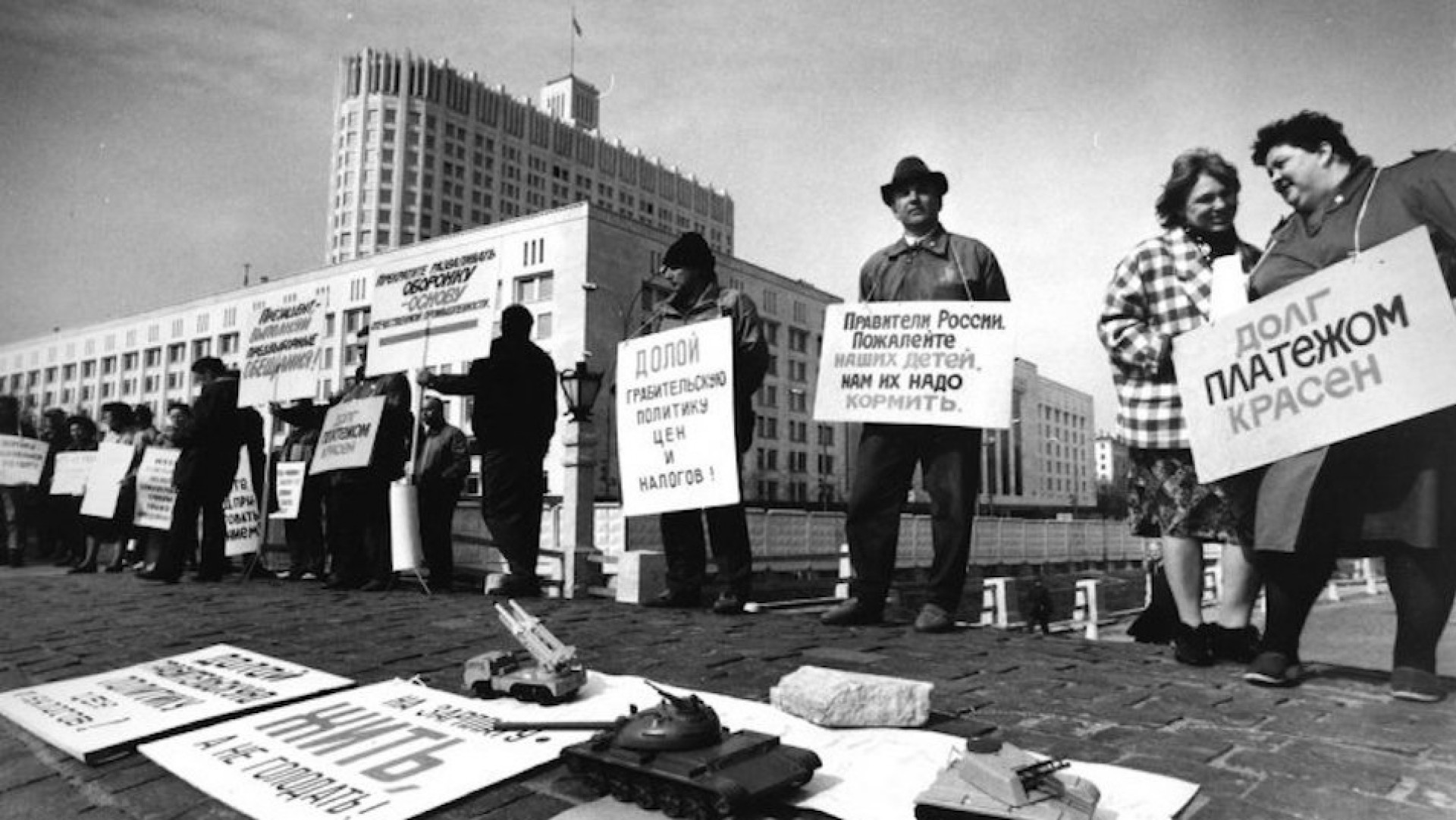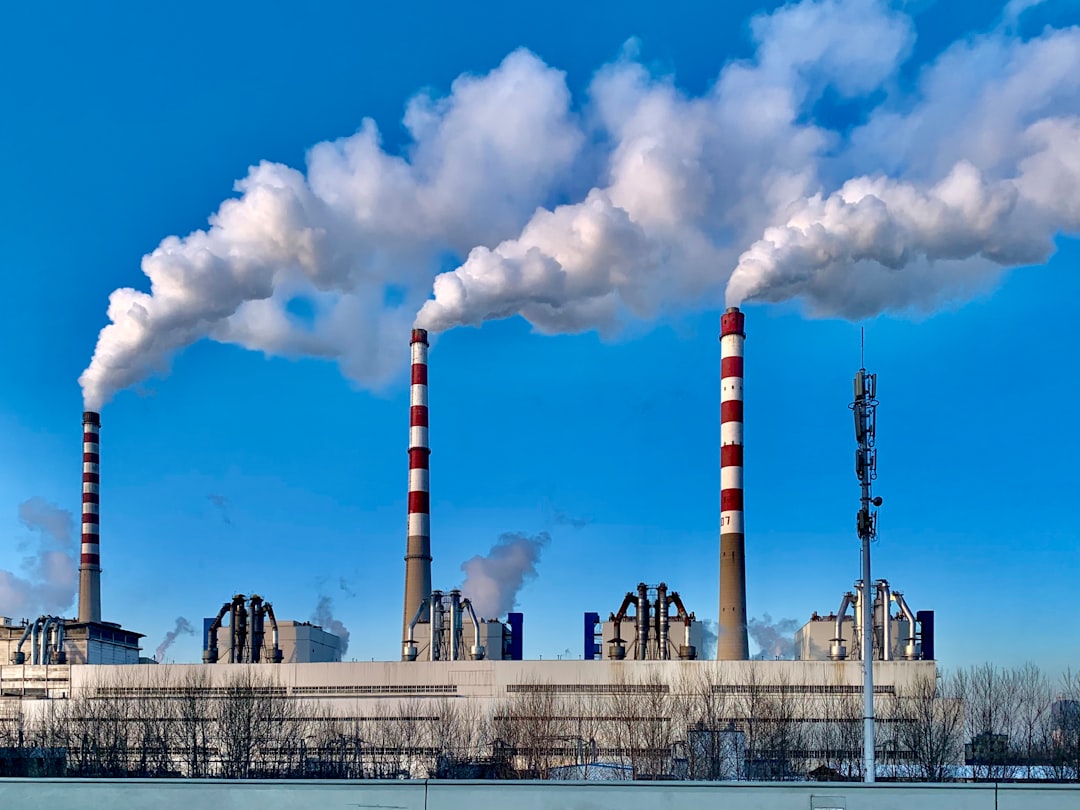Ukraine war: Russia defaults on foreign debt for first time since 1918

Russian President Vladimir Putin has refused to sign off on a debt repayment to the Ukraine, meaning that Russia has officially defaulted for the first time since 1918. In response, Ukrainian President Petro Poroshenko announced that he would be filing suit against Russia in international court.
The default is not unexpected, as Russia’s economy has been struggling as its energy exports decline amid a global economic slowdown. In its report on Ukraine, Standard & Poor’s said that “we consider this to be an uncollectible debt. Therefore, we also lower our long-term sovereign ratings on Russia.”
The Kremlin confirmed it would not be able to honour a $3 billion debt repayment that had been due today, despite Russian President Vladimir Putin issuing a decree on Friday saying that Russia would honour the debt and pay for losses incurred by its state-owned oil giant Rosneft.
A second decree on the same day said that Russia would not pay back the money to its western creditors, and promised debt relief for private companies instead. As a result of defaulting, Russia has lost its coveted investment grade credit rating. The Russian finance ministry’s statement said “Given that this credit rating has not been confirmed by market participants in their actions, it is necessary to acknowledge its lack of competitiveness.
Russia’s economic crisis
The crisis has raised concerns that the financial default could lead to a wider default in the Russian economy, similar to what happened in 1998. This is because the Russian economy has been heavily dependent on its oil and gas exports, and have suffered in recent years due to the global economic slowdown.
The news of the default was met with mixed reaction from financial markets around the world, with some fearing that it could lead back to the 1998 Russian financial crisis, but others arguing that this time was different. Russia’s rating was lowered today by Standard & Poor’s and Moody’s, which said “the probability of default had risen substantially”, and earlier this year by Fitch. However, in a statement today Standard & Poor’s said that “We consider this to be an uncollectible debt.
Russia’s oil & gas revenues
President Vladimir Putin told the upper house Supreme Federal Council today that oil and gas revenues account for around 60% of Russian federal budget revenues. He said that this figure was “much more” than the global average. According to Standard & Poor’s analysis, in 2014 Russia’s oil and gas revenues were $136 billion, accounting for 61% of its gross domestic product (GDP) of $1.7 trillion.
The oil & gas sector accounts for around 70% of the Russian stock market, which has fallen by over 40% this year. According to the IMF’s World Economic Outlook (WEO) publication for October, the Russian economy is expected to contract by 3% in real term GDP growth in 2015.
Ukraine’s debt to Russia
Russia and Ukraine have a long history of war and revolution dating back at least as far as 1917, when both countries had communist revolutions against their monarchies. Russia was the first to collapse into chaos, with the government being overthrown by the Bolsheviks. However, they were soon double-crossed by Vladimir Lenin and the communist party, who had been in league with Germany all along. This led to Russia’s involvement in what would become known as World War I.
In 1804, the Russian Empire was invaded by the French, who took many strategic cities in the south. Over the next century, Russian forces attempted to defeat the French in a series of conflicts, but were outnumbered, and were forced to retreat into the frozen north. In the 1870’s, they signed a peace treaty with France called the “Khan’s Peace”, which granted them control over what is now western Ukraine.
The ruling United Russia party’s current leader, Prime Minister Dmitry Medvedev, has said that the West had created anti-Russian hysteria and appealed to the country to “protect itself”. He said “Our compatriots shouldn’t be worried or scared. We have enough capabilities for this,” he said.
Russia default on debt to Ukraine
Russia has not paid its debt from the 2014 annexation of Crimea and its war in eastern Ukraine. This means that Russia is officially under a state of default, and will be unable to meet its obligations to pay off any loans that it owes. As a result, Standard & Poor’s have downgraded Russia’s credit rating further into junk status. The ratings agency also said that they reduced their long-term rating on the country by two notches into ‘junk’ territory.
Russia is seeking to establish an alternative international financial system to replace the US-dominated banking network. The Chinese and Russian governments have been working on a special monetary fund that will have the capability of replacing the US dollar as the world reserve currency that all other currencies are based on. This would give them more power in setting currency value, and would provide an alternative financial network to protect against any attempt at upsetting their economies by Western powers, particularly the United States.
A group of central bankers from the developing world have met to discuss creating a new reserve currency that would replace the U.S. dollar as the world’s number one reserve currency. The Chinese and Russian financial ministries are presently working on setting up an alternative international monetary system to replace the global banking system, which both countries have been involved in since their communist revolutions in 1917.
Ukraine’s Economy
The current president of Ukraine, Petro Poroshenko, won last month’s elections largely on economic issues. The country’s economy has suffered since Russia’s annexation of the Crimea and its invasion of eastern Ukraine. The country has been in conflict since pro-Russian president Viktor Yanukovych was overthrown in February 2014 and a pro-Western government took control. At the time, Russia annexed Crimea, and also began supporting separatists in the east who wanted to break away from Ukraine.
Russia is one of Ukraine’s largest trading partners, with about a third of all exports going to or coming from Russia. Russia has been a major supplier of goods like oil and gas, but has used this as a bargaining chip to gain political influence over Ukraine. The two countries have been engaged in trade disputes since the annexation of Crimea.
Several firms in Russia have stopped paying their foreign debts amid fears that the country will use its economic muscle to further threaten Ukraine. Elena Panova, head of emerging market strategy at VTB Capital investment bank in London, said “We know that the Kremlin wants to retaliate against sanctions.
Russia severely rebuked by Eurogroup for default on Ukraine debt
The European Commission said on Friday it had written to Russian finance minister Anton Siluanov, calling him to explain why the country would default on its debt linked to the former Soviet republic of Ukraine. The European Union and United States have imposed sanctions on a number of Russian officials over Russia’s annexation of Crimea and support for pro-Russian separatists in eastern Ukraine. Russia still has US$40 billion left in foreign currency reserves.
Russia continues to destabilise Eastern Europe
Russia’s recent gas cut-off to Ukraine, which it had relied upon since 2007, is not an isolated incident. Since the start of its military conflict with Ukraine in 2014, Russia has used its energy resources as a political weapon on numerous occasions against the country’s neighbours. Gazprom is Russia’s state-owned natural gas company and supplies Europe with approximately one-third of its natural gas imports. It is reportedly the largest extractor of natural gas in the world and generates substantial revenues for the Kremlin.
EU foreign ministers call for military action in Russia
Ukraine has been encouraged to launch military action against Russia in response to a cyber attack on Ukraine’s power grid. The European countries are considering sanctions against the country after a report from the National Academy of Defence that exposed damage from Russian hackers in Ukraine.
Kremlin confirms it will not be able to honour a $3 billion debt repayment that had been due today, despite Russian President Vladimir Putin issuing a decree on Friday saying that Russia would honour the debt and pay for losses incurred by its state-owned oil giant Rosneft. The news of the default comes as the United States is weighing new sanctions against Moscow. It has already warned of consequences if Russia does not stop supporting separatists in eastern Ukraine.
Ukraine has taken over from Russia as the largest importer of weapons and military equipment in the world. Its imports have increased by $1bn since 2013, which is a 91% increase. Russia is now the second highest weapons supplier to Ukraine, after only its domestic production.
Kremlin: Russia not going to default on debt
Vladimir Putin has denied reports of a default by Russia over debts linked to the former Soviet republic of Ukraine. A spokesperson for the Russian president said that reports of a default were simply “unfounded”. The Kremlin has admitted that Russia is not able to make a debt repayment due today. It said the move was part of a “strategic decision” to end foreign borrowing, but denies that it amounts to a de facto default. The Kremlin statement said the decision was taken following the start of western sanctions against Russia over its military intervention in Ukraine.
The Russian power and gas giant Gazprom has announced it intends to begin proceedings to sue Ukraine’s state-owned oil company, Naftogaz, in a Stockholm court. The move is just one of a number of measures taken by Russia against Ukrainian interests since the start of conflict between the two countries in 2014.
Russian Private Bank nationalized
Russia’s central bank has announced plans to nationalize the country’s largest independent lender, Private Bank. The Ukrainian subsidiary of Russian state-owned bank VTB is a controlling shareholder in Private Bank. The decision to nationalize comes after the central bank said it had failed to find an investor willing to take on the financial institution’s 26 billion hryvnia ($948m; £655m) in debt.
Russia defaults on Ukraine debt payments
Moscow has officially defaulted on a $3bn (£1.8bn) coupon payment it was due to make in December for Ukrainian Eurobonds. The Kremlin-owned news agency, RIA Novosti, reported that Russia had not made the payment after President Vladimir Putin issued a decree in late November saying that Russia would honour the debt and pay for losses incurred by its state-owned oil giant Rosneft.
Russia to demand debt restructuring from Ukraine
Ukraine will have to restructure a $3bn debt payment due mid-December, Russian Finance Minister Anton Siluanov said. Ukraine owes about $3bn for bonds issued by state-owned energy company Naftogaz that were purchased during Soviet times. Ukraine’s Foreign Minister Pavlo Klimkin said he hoped the issue would be resolved in December. He described the situation as “unacceptable”.
The crisis threatened to lead to a complete Russian-Ukrainian economic collapse and was described in the media as “the most dangerous stand-off between Russia and the West since the Cold War“. Global oil prices fell by more than $4 per barrel immediately after Russia’s invasion of Crimea, but recovered later. The Kremlin made an order to increase export duties on crude oil by 3 percent, which caused tensions with Ukraine, the third largest importer of Russian natural gas.
Ukraine and Russia signed $15 billion in debt restructuring agreements after the 2014 Sochi Olympics. Ukraine’s Finance Ministry said on Monday it will pay $3 billion to holders of bonds issued by Russian state-controlled oil company Rosneft to settle its own arrears. The agreement came before the expiration of a deadline for payments. Kiev has until December 20 to redeem $1.95 billion worth of Eurobonds that are due in December and another $1 billion in bonds that mature in 2015.
Ukraine, Russia face default on Russian bond payments
Ukraine’s central bank has warned it will no longer be able to pay its debts after Moscow said it would not be able to make a debt payment due in December. The central bank said in a statement that it is considering filing a motion before the Supreme Court of Arbitration of the Eurasian Economic Commission. The commission is based in Moscow. Former Soviet republics including Ukraine, Kazakhstan and Uzbekistan owe Russia $50 billion as part of an economic package negotiated after the Sochi Olympics.
Ukraine decided not to hold a Russian bond auction on 9 December, despite receiving an order from the international court in Stockholm to do so. The EBU has said it will stop broadcasting the contest due to Russia’s military intervention in Ukraine and annexation of Crimea.
Ukrainian government reassures investors of debt payment
Ukraine’s central bank has issued a statement reassuring international investors it will make a $3bn (1.8bn) debt payment to Russia in mid-December by locking up Russian assets in Ukraine. The move comes after the central bank said earlier it had failed to find an investor willing to buy its bonds. Government bonds are due for repayment on Dec 20 and the country is already struggling with massive capital outflows that have pushed its foreign currency reserves to a dangerously low level.
Ukraine has set a $3bn bond payment to Russia for mid-December, but said in a statement it was still looking for investors. The move came as Kiev and Moscow were locked in negotiations over Ukraine’s debts after Russian President Vladimir Putin said he would not make the payment. Ukraine’s finance minister Arseny Yatseniuk said on Friday that he had sent letters to officials at the International Monetary Fund and other organizations urging them to help find an investor.
The EU and its member states have imposed several rounds of sanctions against targets tied to Russia’s annexation of Crimea and war in Eastern Ukraine. Some measures target individuals (for example the travel ban on Russian Deputy Prime Minister Igor Sechin, former Finance Minister Alexei Ulyukayev, or head of Russia’s development bank Troika)”, while others have led to the freezing of financial assets.
Individuals targeted include:
The U.S. and EU first imposed sanctions on 11 March 2014, targeting visa bans, asset freezes, and travel restrictions for individuals judged to have contributed to the crisis in Ukraine. In mid-April 2014 the US expanded its sanctions list by adding Russian arms industry firms and issued a warning against investing in Crimea. The EU followed with an expansion of its list on 15 May 2014 that included additional economic sectors.
The U.S. and EU expanded their economic sanctions against Russia in September 2014, targeting oil exploration and arms trade. They also expanded their list of targeted individuals. Later in July 2015 the EU added a number of Russian individuals as well as companies to an asset freeze list.
The US sanctions that have been released/continued since 11 March 2014 are:
In September 2014, the EU added a number of Russian individuals and companies to an asset freeze list. In April 2015, the US imposed sanctions on companies in the Russian oil and defense sectors that were providing support to Russia’s military occupation of Crimea. The EU later imposed restrictions against investments in Crimea as well as an export ban for equipment used there.
An early report to the European Council on the situation in Ukraine was made by the Commission on 10 April 2014. It said that “the political process has at best moved haltingly” and there had been no sign of agreement on a constitutional reform which would provide for decentralization or a cease-fire. Whilst noting that fighting had ceased in many areas, it said that tensions in some areas of Eastern Ukraine continued.





